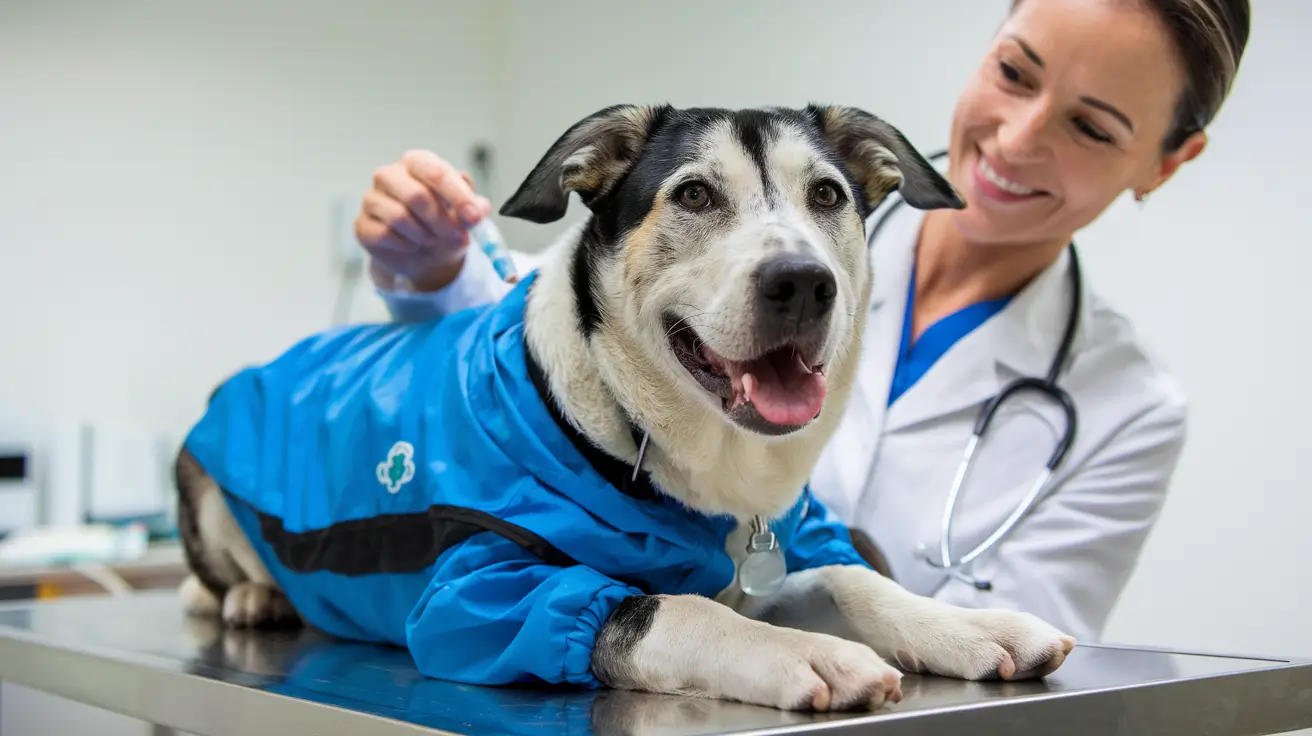The Importance of Vaccinating Your Dog
Vaccinations play a vital role in safeguarding the health of dogs from their early days as puppies through to their senior years. These medical interventions are the most effective and economical means to shield your dog from numerous infectious and preventable diseases. Over the past decade, advancements in vaccine science have significantly enhanced both the safety and efficacy of canine vaccinations, offering protection against a range of existing and emerging pathogens.
Understanding Core and Noncore Vaccines
Dog vaccinations are categorized into two main types: core and non-core vaccines. Core vaccines are mandatory for all dogs and puppies, ensuring protection against critical diseases. The combination vaccine, known as DA2PP, DHPP, or DAPP, covers distemper, adenovirus (hepatitis), parvovirus, and parainfluenza. Additionally, the rabies vaccine is legally required in the U.S. and is crucial for preventing this fatal virus, which poses a threat to both dogs and public health.
Noncore vaccines, often referred to as lifestyle vaccines, are optional and are administered based on factors such as a dog's lifestyle and geographic location. These vaccines are tailored to protect against highly contagious or potentially life-threatening diseases, with the decision to vaccinate depending on a variety of factors, including geographic location, lifestyle activities, travel, and exposure to certain environments.
Puppy Vaccination Schedule: The First Steps
Establishing a vaccination schedule for puppies is critical for effective disease prevention. Typically, vaccines are administered every two to four weeks until a puppy reaches at least 16 weeks of age. In high-risk areas, it may be beneficial to extend the vaccination period up to 18-20 weeks. Consulting with a veterinarian is essential to determine the appropriate schedule for your puppy, ensuring they receive the necessary protection during these formative months.
Vaccination Needs for Adult Dogs
Adult dogs continue to require vaccinations to maintain their immunity against diseases. Core vaccines are administered annually or every three years, depending on the specific vaccine. Noncore vaccines are given based on the dog's lifestyle and geographic location, with veterinarians playing a crucial role in customizing vaccination schedules to meet the individual needs of each dog.
Diseases Prevented by Vaccines
Vaccines protect dogs from a variety of diseases, including rabies, distemper, parvovirus, and more. Rabies, a fatal virus that causes neurologic disease, is transmitted through bites from infected animals. The DAP vaccine guards against diseases like distemper, adenovirus, and parvovirus, which can lead to severe illness and death in canines. Other vaccines, such as those for kennel cough and canine influenza, are recommended for dogs that frequent social environments like daycare or grooming facilities. Additionally, vaccines for leptospirosis and Lyme disease are vital in areas where these diseases are prevalent.
Lifestyle Considerations for Noncore Vaccines
The decision to administer non-core vaccines is influenced by several lifestyle factors. Geographic location plays a significant role, as certain diseases are more prevalent in specific areas. Social activities, such as attending dog parks or boarding facilities, increase the risk of exposure to contagious diseases. Traveling or spending time in environments like the wilderness or near bodies of water may also necessitate additional vaccinations. Overall, a dog's health and lifestyle should guide the choice of non-core vaccines.
Cost of Vaccinations: Planning and Budgeting
Budgeting for canine vaccinations is an important aspect of pet ownership. The cost of vaccinations can vary, and planning ahead can help manage expenses. Pet owners can explore options for savings, such as clinics offering discounted services or pet insurance plans that cover vaccination costs. Understanding the financial commitment involved in maintaining a vaccination schedule is key to ensuring your dog receives the necessary protection.
Potential Adverse Reactions to Vaccinations
While vaccines are generally safe, it is important to be aware of potential adverse reactions. Most dogs experience mild side effects, such as discomfort or swelling at the injection site, mild fever, or decreased energy and appetite for a day. However, if these symptoms persist beyond 24 hours, it is crucial to contact a veterinarian. In rare cases, more severe reactions, including vomiting, diarrhea, swelling, or difficulty breathing, may occur shortly after vaccination. Immediate veterinary care is required for these serious side effects.
Consulting with Your Veterinarian
Working closely with a veterinarian is essential in tailoring a vaccination plan that best suits your dog's individual needs. Veterinarians provide expert guidance on the appropriate vaccines based on a dog's lifestyle, geographic location, and overall health. By collaborating with a veterinarian, pet owners can ensure their dogs receive the necessary protection against a range of infectious diseases.
Conclusion
In conclusion, dog vaccinations are a fundamental aspect of maintaining your pet's health. By understanding the importance of vaccines, differentiating between core and noncore vaccines, and adhering to a recommended vaccination schedule, you can help ensure your dog remains healthy and protected throughout their life. Always consult with your veterinarian to determine the best vaccination plan tailored to your dog's unique needs.






